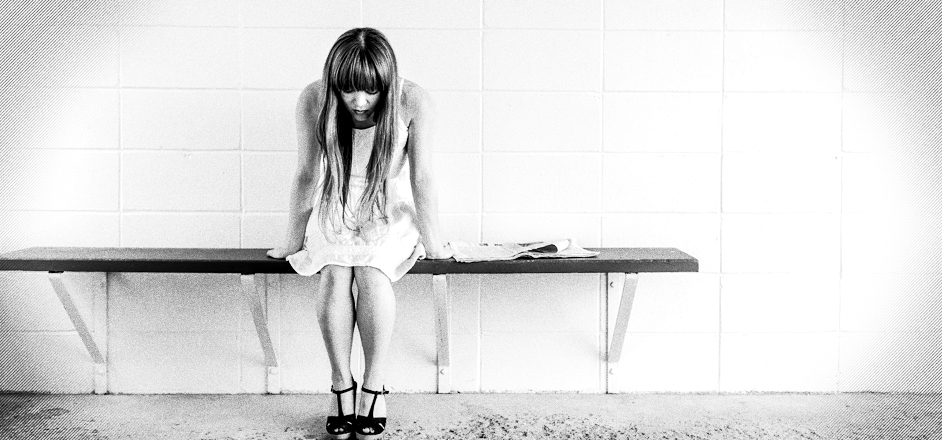Twenty-year-old Grant Snyder works as a cameraman for a sports network, has dark blonde hair and enjoys riding mountain bikes, playing video games and listening to music. By all accounts, he's a normal human being except for one attribute; he was born and raised as a Jehovah’s Witness.
Because of his unique position, Snyder is able to provide insight from deep inside the organization about sexual predators within the congregation. From his vantage point, he’s seen countless acts of abuse, and still can’t wrap his head around the group’s “Two Witness Rule” — which, according to Snyder, is an unwritten guideline “that requires two witnesses to validate sexual abuse allegations against another member of the religion.”
It's something the church hasn't ever owned up to despite facing charges of abuse in several countries worldwide.
“So if a single victim comes forward with allegations,” Snyder says, “they are not accepted and the matter is ‘left in God's hands.’ But everything changes if multiple people step forward. This leaves sexual predators safe and harbored [within the congregations].”
This kind of thing makes it difficult for any victims to come forward and make allegations, he explains, especially if they know they'll never be believed without another person to corroborate the story.
“It is just another way women are powerless in the organization,” he adds. “The fact that any and every sexual abuse situation is instantly swept under the rug if there isn't more than one witness is disgusting. Leaving these situations in God's hands is the exact opposite thing to do in my opinion.”
Officially, the organization’s website offers no trail of existence on the Two Witness Rule — and of course won’t comment on the matter. However, several current and former Witnesses share the same story, that it’s something true and even based on a Bible passage their taught stating two people should talk to a third who is struggling with sin.
Yet even through the forced silence of its members, Jehovah’s Witness leaders have a documented legal history of not reporting allegations of confessions to the authorities and of trying to handle the affairs internally only.
According to a recent case study published by the Australian government, the official stance of the organization is that it “abhors sexual abuse” and “will not protect any perpetrator." Although, the same case study found that a “spiritual investigation” is done by Witnesses when sexual misconduct allegations are brought to the attention of Elders, and then the matter is to be left to God to sort out, as Snyder pointed out. The extensive report also asserts that until 1998, accusers had to tell Elders of misconduct in the presence of their alleged abuser.
Amelia Johnson, a 21-year-old newlywed, shares her experience with the church that sounds awfully similiar to what the Australian government surmised.
“They [the Elders] didn’t turn the information over to the police and court, even when my mother and sister went to the authorities and the church was contacted,” she said, speaking of when her sister was abused by someone in the congregation. Johnson admits she was abused, too, but didn’t come forward because she felt powerless.
“They [the church leaders] don't let the rest of the congregation know [about sexual abuse] and will reinstate them fairly soon, six months to a year, especially if the abused is no longer part of the organization,” Johnson says.
Snyder recalls a similar memory. Although he remembers that in his case, it was harder for his congregation to keep quiet about it because the sexual predator was arrested right in the middle of the church service. Despite that, he says the topic was still “taboo” and that it was “never spoken of” amongst the church patrons.
“When they [the young victims] finally told their mother,” he says, “it took them a couple months because they were really scared; she called the elders of her congregation and told them everything. They told her to not contact the police. The elders had a visit with the offender and he confessed to them, but was very repentant so they felt empathy for him and dropped it, doing nothing about it legally.”
It's proven more so by a leaked document meant only for the eyes of church leaders (obtained by AvoidJW.org, a non-profit organization that hopes to "inform the world about the dangers of Jehovah’s Witnesses and their doctrine"). The paper, meant for church authorities only, expressly states child molesters and pedophiles can be given roles of authority and privileges in the congregation, or even reinstated to those roles after committing the crime, despite a Watchtower article (a type of internal magazine for the church) that lead Witnesses to believe the contrary.
Despite approaching numerous active Witnesses about the story, most refused to speak about any of the ongoing lawsuits, the Two Witness Rule, or child abuse in the church. One witness who did make comment, on the condition of anonymity, said plainly that, “We’re told not to discuss it or talk about it.”
Whether or not Jehovah’s Witnesses are covering up abuse or are guilty of any crimes is for a fair and balanced court to decide as investigations continue. However, forums on Reddit like r/exjw or on sites like SilenceLambs.org — where many former and current Witnesses can be found — provide a sanctuary for many victims to be heard and receive support without the need for a third person to validate their claim.
Those on the sites share that they only want to help those within the organization gain knowledge and to support one another through sharing stories and offering encouragement.
“I feel that most JWs are genuine and loving,” Snyder says, “just brainwashed by the years of listening to the organization.”




Leave a Reply